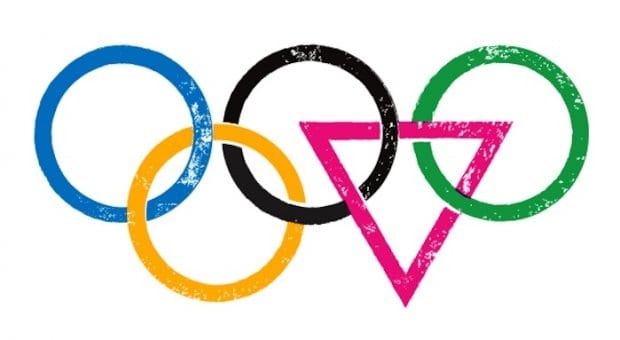It’s still unclear whether there will be a Pride House in Sochi.
In a Nov 19 meeting of the House of Commons committee on heritage, opposition MPs quizzed representatives of the Canadian Olympic Committee and the minister of state for sport about protections for queer athletes and spectators.
NDP sport critic Matthew Dubé asked what Canada will be doing to agitate for a Pride House — a special location in the Olympic village for LGBT athletes and their families.
Last March, a Russian judge banned a proposed Pride House under the much-decried anti-gay-propaganda law, calling it “extremist.” Since then, Pride House International, the organization that has set up the inclusive space at various sporting events, including the Olympic Games in Vancouver and London, has been trying to find international partners.
Dean Nelson, founder of the organization, wrote in a statement that “we are in discussions with a few such national houses for them to offer one or more days or evenings of programming in line with the tradition of past Pride Houses.”
But Dimitri Soudas, former director of communications for Prime Minister Stephen Harper, now the executive director of communications for the Canadian Olympic Committee, told members of Parliament that Canada will have an “Olympic House” that will be inclusive of all Canadians.
Soudas, however, highlighted that what goes on in the Olympic Village is up to the Russian government. He would not commit to hosting events — panel discussions, movie screenings or receptions — for the pro-gay organization.
Both NDP LGBT critic Randall Garrison and Liberal heritage critic Stéphane Dion asked Minister of State for Sports Bal Gosal and Canadian Olympic Committee president Marcel Aubut what protections and support Canadians would receive if they are subject to the anti-gay laws while attending the Olympics.
“The anti-gay law in Russia has already been used against Russians and non-Russians alike,” Garrison told the witnesses.
Garrison handed out posters to the committee depicting same-sex athletes kissing, pointing out that they would be illegal under the Russian legislation.
Gosal responded by saying that the Russian government has promised Canada that the anti-gay laws, which could lead to imprisonment and fines for public displays of homosexuality, would not be enforced during the Games.
The NDP, led by Garrison and Dubé, has called for a consular official to be posted in Sochi to deal exclusively with issues that may arise for LGBT Canadians. The government has, thus far, not responded to that request.
Aubut waved away the idea.
“We also received an absolute assurance from the highest powers at the Olympic Committee . . . that this legislation will have no impact on our fans, our athletes and the media,” he said, underlining that his organization’s goal is to win and that he would work to avoid “distractions,” including the law.
“With all due respect, for gay, lesbian or gender-variant athletes,” Garrison responded, “it would be a distraction to have such a threat.”
Aubut did reinforce the Canadian belief in “the absolute right to play sport, regardless of race, gender or sexual orientation.”
Gosal told the committee that Canada will have ample consular staff to deal with any issues that may arise. Several committee witnesses for the Olympic and Paralympic organizations told the room that they have received security briefings and are involved in planning for every eventuality that may arise at the games.
The Department of Foreign Affairs has told Xtra that “contingency plans” are already being drawn up.
Read more: From ancient Greece to Sochi — a gay history of the Olympic Games


 Why you can trust Xtra
Why you can trust Xtra


